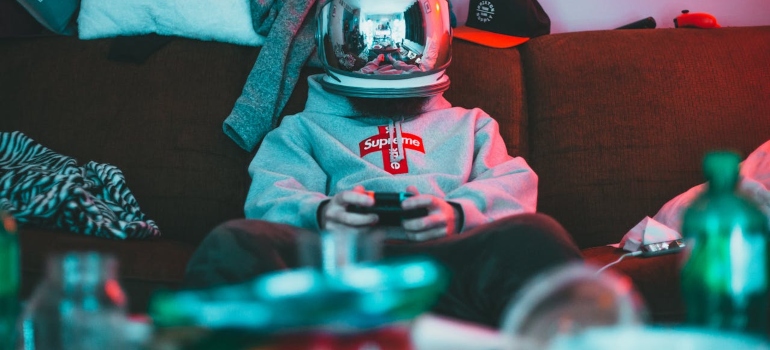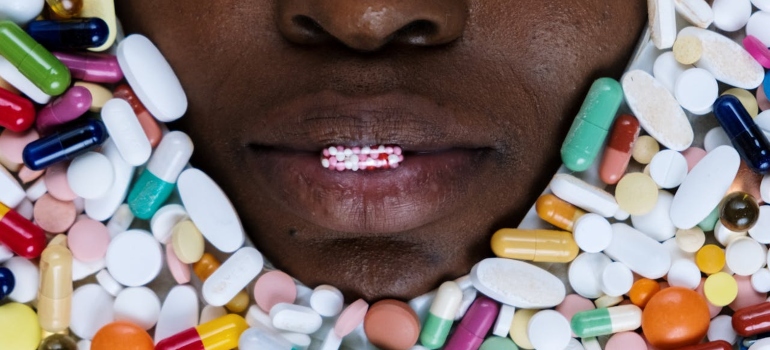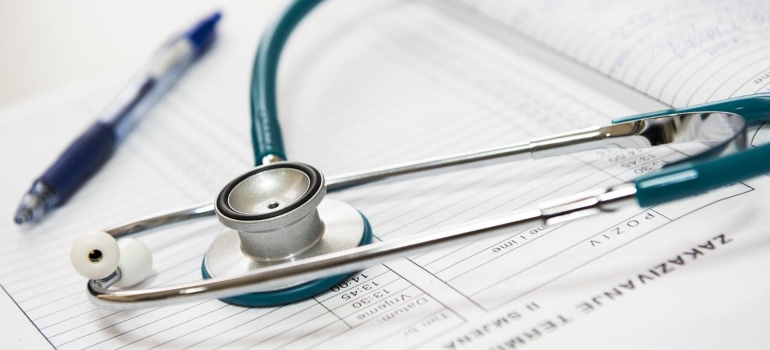Bipolar disorder and addiction are two delicate conditions that sometimes exist alongside one another, posing additional challenges for those affected. Those with addictions can also have associated mental health conditions like bipolar disorder, making the road to recovery more challenging. Treatment and support for these medical conditions require taking into account how they interact with one another. In this comprehensive guide, we delve into the complexities of addiction and bipolar disorder, analyzing their intertwined nature and exploring strategies and treatment methods that can be used to address both simultaneously. Whether you’re facing these obstacles on your behalf or seeking help for a loved one, we will try to provide clarity, support, and actionable strategies for fostering healing and reclaiming lives, as well as checking out some rehab centers in WV. There is no one correct way of doing this, of course. Everyone can have different paths to recovery.
Understanding the Connection Between Addiction and Bipolar Disorder
Adequate treatment and support for bipolar disorder and addiction demand an understanding of this relationship. These two conditions typically overlap, resulting in a complex interrelationship that could make each other’s symptoms worse. Addiction could come from an individual with bipolar disorder using drugs as self-medication or as a way to cope with their mood swings. On the other hand, drug abuse may worsen or trigger bipolar disorder sufferers’ mood episodes. That feeds a dangerous cycle of imbalance and dependence. Cases of dual diagnosis, in which an individual has both bipolar disorder and addiction at the same time, are becoming more common. This highlights the importance of integrated treatment strategies that manage both disorders at the same time. By examining the correlation between bipolar disorder and addiction, we may obtain greater insight into the challenges that people face and develop effective plans for nurturing recovery and mental health.

Challenges that People with Addiction and Bipolar Disorder are Faced With
The difficulties that people with co-occurring bipolar disease and addiction have are numerous and sometimes overwhelming, significantly influencing their potential to recover. These specific issues cover many different kinds of challenges, such as:
- Mood swings: Since bipolar disorder is identified by mood swings, it may prove difficult to maintain emotionally stable well-being. That increases the risk of substance abuse as a self-medication method.
- Impulsivity: During manic episodes, people can show impulsivity and risk-taking behaviours, which elevates the chance of misuse of substances and makes it harder to stay clean.
- Medication management: It can be tricky to achieve the right balance between the difficulties of addiction recovery and the complicated medication regimens necessary to manage bipolar illness. This requires close observation of treatment recommendations.
Overcoming these barriers demands a comprehensive approach to treatment, and sometimes even family therapy that takes into consideration the specific needs of people with co-occurring bipolar disorder and addiction.
Integrated Treatment Approaches
This type of treatment technique is essential for people who are struggling with bipolar disorder and addictions that overlap. These all-encompassing programs provide individual treatment while also attending to both conditions to promote overall well-being. Such therapies, which include many therapeutic modalities, such as cognitive-behavioural therapy, offer crucial tools for symptom management and sobriety preservation. The integrated treatment provides an intermediary toward recovery and stability, especially for drug rehab for young adults. Coping with the complicated issues of addiction and bipolar disorder, many drug rehab centers take a holistic approach. By recognizing the complex relationship between mental health and the consumption of drugs, holistic types of rehab centres are providing personalized care and support. Using the integration of medicines, changes in habits, and behavioural therapies, these programs enable individuals to take control of their lives and set themselves on a path toward long-term recovery.

More Regarding Holistic Approach
A holistic healing method that encompasses every aspect of mind, body, and spirit becomes extremely important when managing the complex issues of addiction and bipolar disorder. Understanding how everything is connected and how various aspects of the human experience are functioning, this method tries to address them simultaneously. The cornerstone of such a comprehensive approach is holistic therapy for addiction. This type of therapy provides people with a path to recovery that goes beyond mere symptom management. Through the combined promotion of mental, physical, and spiritual well-being, holistic therapy empowers people to identify the root causes of their problems. It also helps them develop long-lasting coping strategies. People may develop resilience and inner peace by learning more about themselves and their triggers through exercises like mindfulness, yoga, and meditation. This comprehensive framework provides individuals with the tools necessary to face everyday challenges with compassion and authenticity.
Could the abuse of Substances Lead to Bipolar Disorder?
Since bipolar disorder can lead to the use of substances, of course, the other way around is also possible. According to experts, bipolar disorder and substance abuse can both hurt the brain’s neurotransmitter systems. That type of negative effect could cause problems with reward and motivation systems. The study suggests that people with bipolar disorder have an increased risk of abusing substances, and they often do so as a self-medication strategy to try and balance their mood. Numerous studies do indicate a significantly higher rate of concurrent substance abuse disorders among individuals with bipolar disorder. A wide range of explanations have been proposed to explain why substance abuse is so common in the bipolar community as a whole. It could be because bipolar disorder may present as a symptomatic presentation of substance abuse.

IPSRT and Psychoeducation: Fighting Addiction and Bipolar Disorder
The primary objective of interpersonal and social rhythm therapy (IPSRT) is to control mood by managing everyday activities, such as waking up, sleeping, and eating. Keeping a routine helps people regulate their moods more efficiently, particularly individuals who have bipolar disorder. Setting up a structured daily schedule for food, exercise, and sleep can help with dealing with symptoms. Psychoeducation, on the other hand, is necessary for improving people’s and their support systems’ perceptions of bipolar disorder. Understanding this condition better enables people to get the best levels of care. It also helps them to identify possible difficulties, build relapse prevention plans, and successfully execute prescribed therapies. Learning more about bipolar disorder and its complicated nature from yourself and loved ones helps people deal with it more easily and effectively, which eventually leads to better results and improved mental health.
Lifestyle and Home Remedies When Overcoming Addiction and Bipolar Disorder in Rehab
Lifestyle changes will probably be essential in order to eliminate the cycles of behavior that intensify your bipolar condition. What you can do is give up drinking and recreational drug consumption. One of the main concerns linked to bipolar disorder is the harmful consequences of taking risks and misusing drugs or alcohol. If you are unable to stop on your own, make sure to get some help and contact some of the best rehab clinics in VW so that you can get the appropriate help. Cultivate healthy relationships. Be in the company of positive people around you. Family and friends can encourage you and support you in keeping an eye out for any early signs of mood swings. Before taking additional drugs, make sure that you are not taking the wrong ones. If you get in touch with any over-the-counter supplements or medications, make sure to call your psychiatrist.

Make Sure to Keep Your Mood Chart
Previously, we discussed that routines are important when fighting addiction and bipolar disorder simultaneously. Still, we did not mention in great detail how keeping the mood chart can be extremely important in this case. For people undergoing treatment in rehab for addiction and bipolar disorder, keeping a mood chart can be a beneficial instrument. Through comprehensive records of daily moods, activities, emotions, sleep patterns, and treatments, people might obtain invaluable insights into their condition. The method enables an increased understanding of personal patterns and weaknesses by helping to identify triggers for both addiction and bipolar symptoms. In that way, mood charts help patients and medical professionals make well-informed decisions on ongoing treatment. Additionally, it functions as a useful guideline for identifying potential therapy adjustments, ensuring that treatment methods stay personalized and efficient. Basically, creating a mood chart gives people the ability to engage actively in their rehabilitation process.

Alternative Medicine
If you choose alternative medicine in addition to your doctor’s recommended course of care, you need to make sure to know a couple of things. Never skip therapy sessions or quit taking your prescription medications. When it comes to treating bipolar disorder, unconventional or complementary medicine is not a replacement for traditional medical care. Also, make sure to communicate freely with your mental health and healthcare providers. Discuss in detail the complementary and alternative therapies you currently use or would like to try. Studies on complementary and alternative medicine, often known as integrative medicine, and bipolar disorder are limited. Be aware of possible dangers for the most part. Supplementary and alternative products are not covered by the same regulations as prescription medications. It’s not always safe to do something just because it’s natural. Consult your doctor about the risks that exist, including potential dangerous drug interactions.
What Types of Questions Should You Expect from a Doctor?
Not all doctors will ask the same questions. Still, there are some universal questions that can help you prepare, and you can ask them additional questions if needed. Of course, this is not a job interview, and there is no need to feel pressured about that. There are just some common questions you can expect.
- When did you or the people closest to you begin noticing your symptoms?
- How often do you experience shifts in mood? Do you ever contemplate self-harm when you’re depressed?
- Do your symptoms have an impact on your relationships or day-to-day activities?
- Do you have any blood relatives who suffer from depression or bipolar disorder?
- Do you use recreational drugs, smoke cigarettes, or drink alcohol?
- What is your nightly sleeping duration? Does it change with time?
- Do you frequently participate in risky behaviors that you wouldn’t ordinarily pursue? For example, do you initiate sex too soon or make impulsive financial decisions?
Even if some questions seem unpleasant to answer, they are crucial to understanding your symptoms and recovery process. Therefore, speak your truth and don’t think about being judged.

Overcoming Addiction and Bipolar Disorder is Difficult to Deal With, but Not Impossible
A comprehensive strategy for treatment and recovery must be adopted due to the complex connection between bipolar disorder and addiction. Understanding the complex relationships between these conditions is essential to implementing solutions. That solution will effectively meet the particular demands of people with dual diagnoses. Individuals can begin their journey toward a healthier lifestyle. They can do that by enrolling in integrated treatment programs that include psychotherapy, prescription drug management, and holistic therapies. When bipolar disorder and addiction are treated together, individuals obtain the resources and encouragement they need to face their challenges of recovery head-on and with resiliency. Also, lowering discrimination and enhancing access to comprehensive medical services depend on boosting knowledge and understanding within communities.
References:
https://www.cadabams.org/blog/holistic-approach-to-treating-bipolar-disorder
https://www.mind.org.uk/information-support/types-of-mental-health-problems/bipolar-disorder/causes-of-bipolar/#:~:text=Some%20studies%20suggest%20that%20using,discuss%20it%20with%20your%20doctor.



